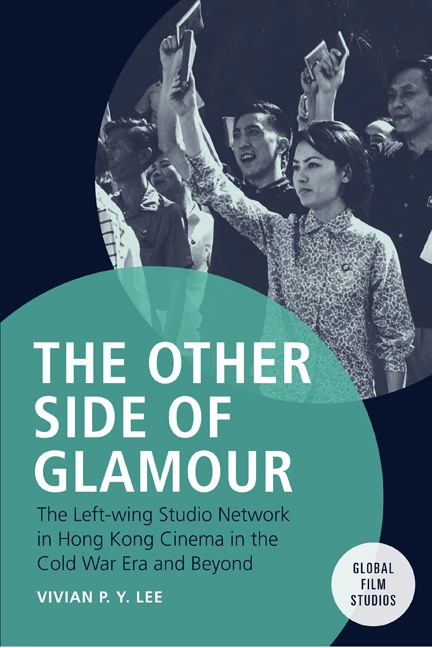 The Other Side of Glamour
The Other Side of Glamour Published online by Cambridge University Press: 17 September 2020
The decline of left-wing studios during the Cultural Revolution and their subsequent consolidation into a market-oriented conglomerate, Sil-Metropole Ltd., marked the end of what can be called the “classical period” of Hong Kong's left-wing cinema. As mentioned in Chapter 5, the left-wing's progressive ethos was adapted into the corporate mission of Sil-Metropole as both Hong Kong and China entered a new phase of political and economic transformation. While the reconfiguration of the classical left-wing into a multimedia conglomerate marked an important transition in China's cultural policy, which sees culture as both soft power and an instrument of economic modernization, the local cinema was seeking new orientations that would eventually render the left–right divide obsolete. While politics and society continued to inspire local filmmakers, the decline of the left-wing studios signaled a gradual shift from the classical left-wing's commitment to cinema as a form of social action and mass education to more individualistic visions of society and culture. These new voices were harbingers of a home-grown art cinema, a critical transition that anticipated the arrival of what came to be known as the “New Hong Kong cinema” in the 1980s.
This chapter takes a detour into the critical transition made by Patrick Lung Kong (1934–2014) and Cecile Tang Shu-shuen (b. 1941). Different in background and artistic orientation, both Lung and Tang stirred up controversies and debates over their filmic interventions into politics and society. Lung's 1970 feature, Yesterday, Today, Tomorrow, came under fire by pro-China groups for its barely disguised condemnation of the violence and chaos instigated by left-wing activists in Hong Kong during the 1967 riots. Didactic and prescriptive at times, Lung's films display a greater confidence in the city's modern institutions and the liberal values they represent, which inevitably alienated him from the anti-capitalist and anti-colonial politics of the left -wing. Born in Yunan and educated in the US, Tang made her debut, The Arch, in 1969, an award-winning film showcased at film festivals in Taiwan and Europe.
To save this book to your Kindle, first ensure no-reply@cambridge.org is added to your Approved Personal Document E-mail List under your Personal Document Settings on the Manage Your Content and Devices page of your Amazon account. Then enter the ‘name’ part of your Kindle email address below. Find out more about saving to your Kindle.
Note you can select to save to either the @free.kindle.com or @kindle.com variations. ‘@free.kindle.com’ emails are free but can only be saved to your device when it is connected to wi-fi. ‘@kindle.com’ emails can be delivered even when you are not connected to wi-fi, but note that service fees apply.
Find out more about the Kindle Personal Document Service.
To save content items to your account, please confirm that you agree to abide by our usage policies. If this is the first time you use this feature, you will be asked to authorise Cambridge Core to connect with your account. Find out more about saving content to Dropbox.
To save content items to your account, please confirm that you agree to abide by our usage policies. If this is the first time you use this feature, you will be asked to authorise Cambridge Core to connect with your account. Find out more about saving content to Google Drive.